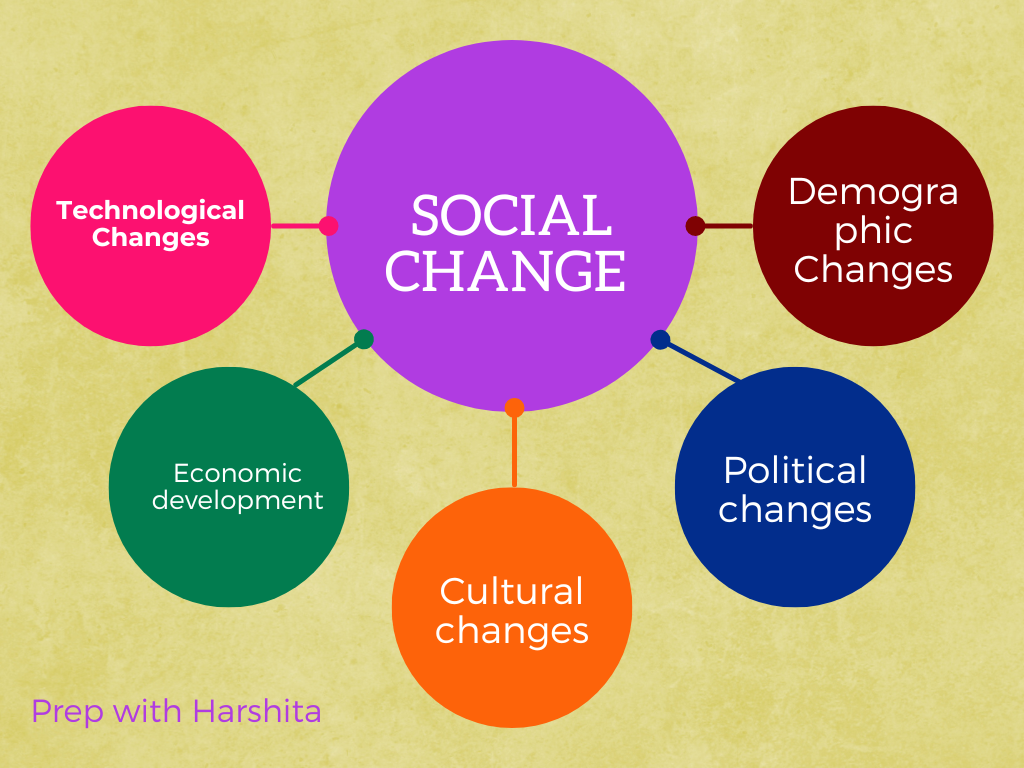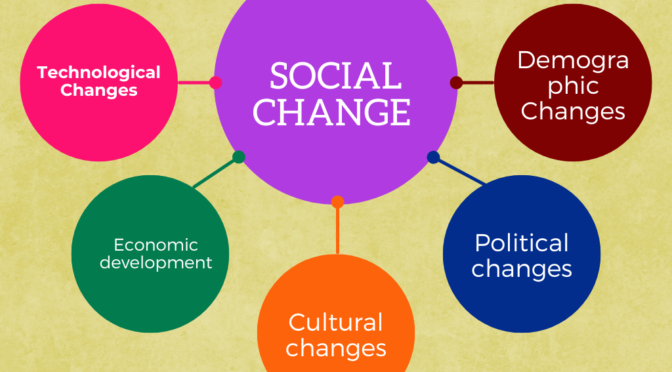Social change refers to any significant alteration in the patterns of social behavior, attitudes, and beliefs that occur within a society over time.
This can occur in response to a variety of factors, including changes in technology, economic conditions, political developments, cultural trends, and demographic shifts.
Social change can take many different forms, including changes in social norms, values, and beliefs, changes in social institutions and organizations, and changes in individual behavior and attitudes.
Some examples of social change include the abolition of slavery, women’s suffrage, the civil rights movement, the legalization of same-sex marriage, and the adoption of new technologies such as the internet and social media.
Social change can be driven by a range of actors, including grassroots social movements, government policies, and changes in public opinion. It can be either gradual or rapid and can have both positive and negative impacts on individuals and communities. Ultimately, social change is a complex and ongoing process that reflects the evolving needs and priorities of a society over time.
Also Visit: Prep With Harshita
There are many reasons why social change occurs, including:
- Technological advancements: Technological advancements can change the way people live and work, leading to changes in social structures and behaviors. For example, the invention of the internet and social media has had a profound impact on communication and social interactions.
- Economic developments: Changes in economic conditions, such as shifts in the job market, changes in global trade patterns, and fluctuations in economic growth, can lead to changes in social structures and behaviors. For example, the decline of manufacturing jobs in the United States has led to changes in the way people live and work.
- Political developments: Changes in political systems and policies can have significant impacts on social structures and behaviors. For example, the civil rights movement in the United States led to changes in laws and social attitudes toward race and discrimination.
- Cultural shifts: Changes in cultural norms and values can lead to changes in social structures and behaviors. For example, changing attitudes toward gender and sexuality have led to changes in laws and social practices related to these issues.
- Demographic changes: Changes in population demographics, such as changes in the age, gender, and ethnic composition of a society, can lead to changes in social structures and behaviors. For example, the aging of the population in many developed countries has led to changes in social policies related to retirement and healthcare.
Overall, social change is a complex process that is driven by a range of factors, including economic, political, technological, cultural, and demographic changes.
Also Read: Types of Socialization


